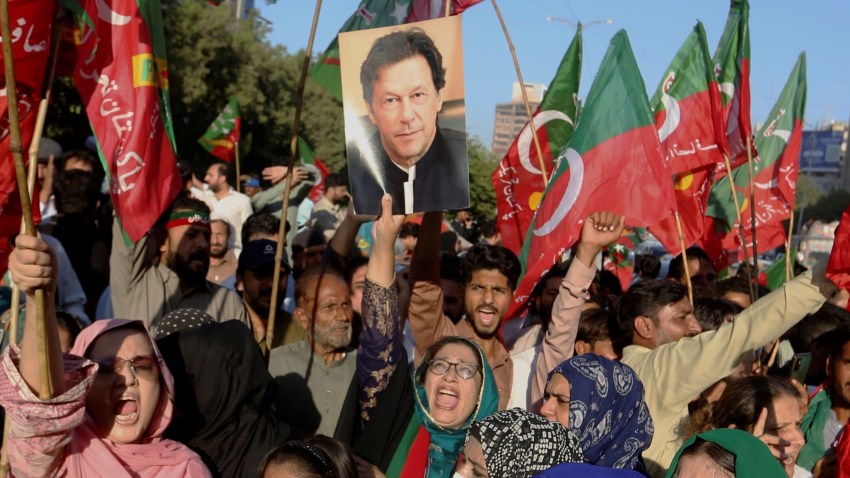Polls have closed in Pakistan’s general election, which has already been marred by violence, with at least 30 people killed in bombings at political offices yesterday. The elections follow a monthslong campaign by the country’s military to imprison populist former PM Imran Khan and gut his party. (AP)
Our Take
The elephant in the room of Pakistani politics has always been the influence of the country’s military, which has ruled directly for half of Pakistan’s 76 years of independence and indirectly for the other half. Powerful generals have maintained a delicate balance, largely staying out of domestic politics so long as politicians neither threaten the military’s autonomy nor infringe on its primary sphere of control: foreign and security policy.
Khan, who rose to power in 2018 with the support of the military, seemingly made both mistakes two years ago. He was ousted in a no-confidence vote in April 2022 that most observers believe was engineered by the armed forces, reportedly due to disagreements over high-level military appointments and the country’s foreign policy trajectory. Since then, Khan has engaged in an unprecedented direct and vocal standoff with the military that ended with his imprisonment, the dissolution of his party and the persecution of his allies.

